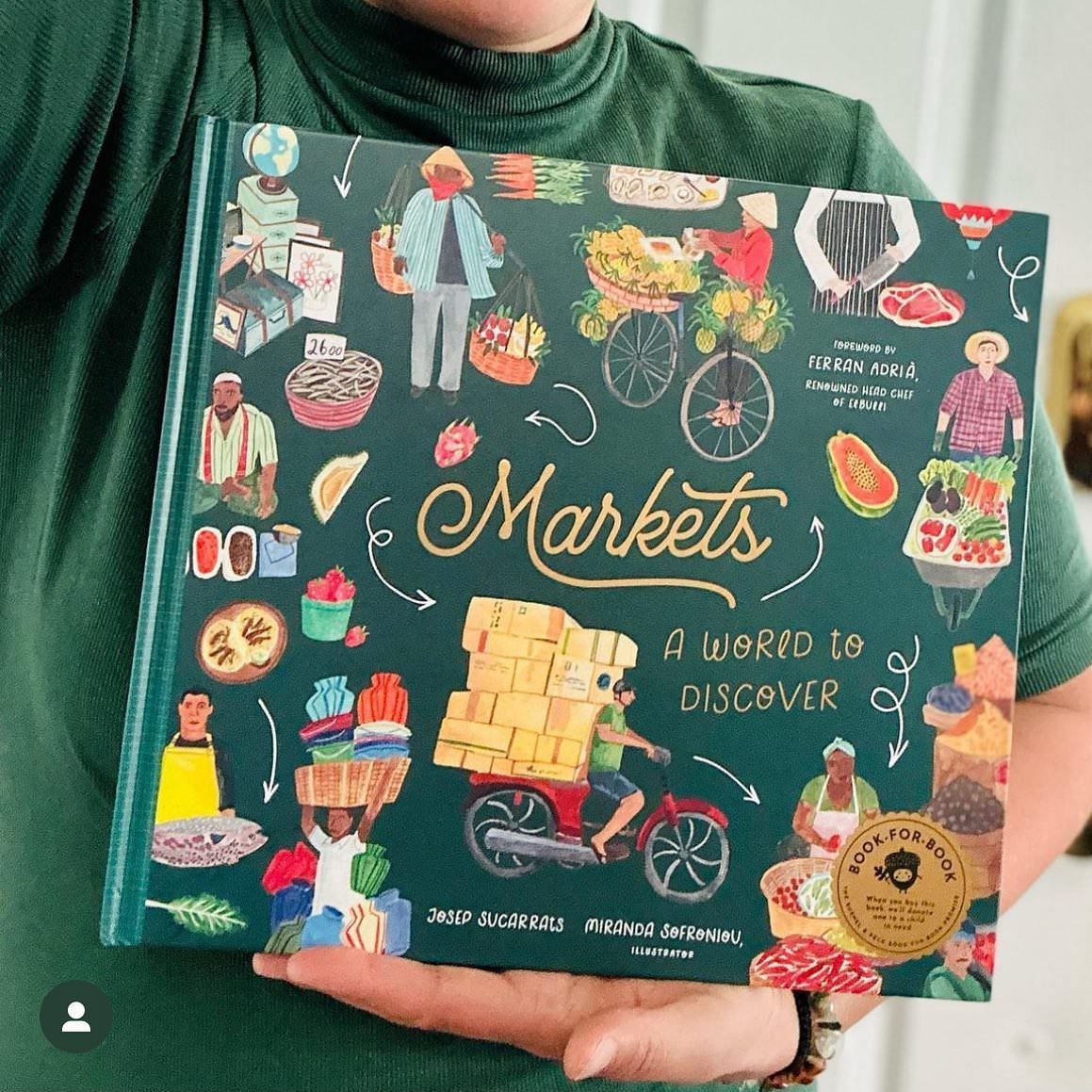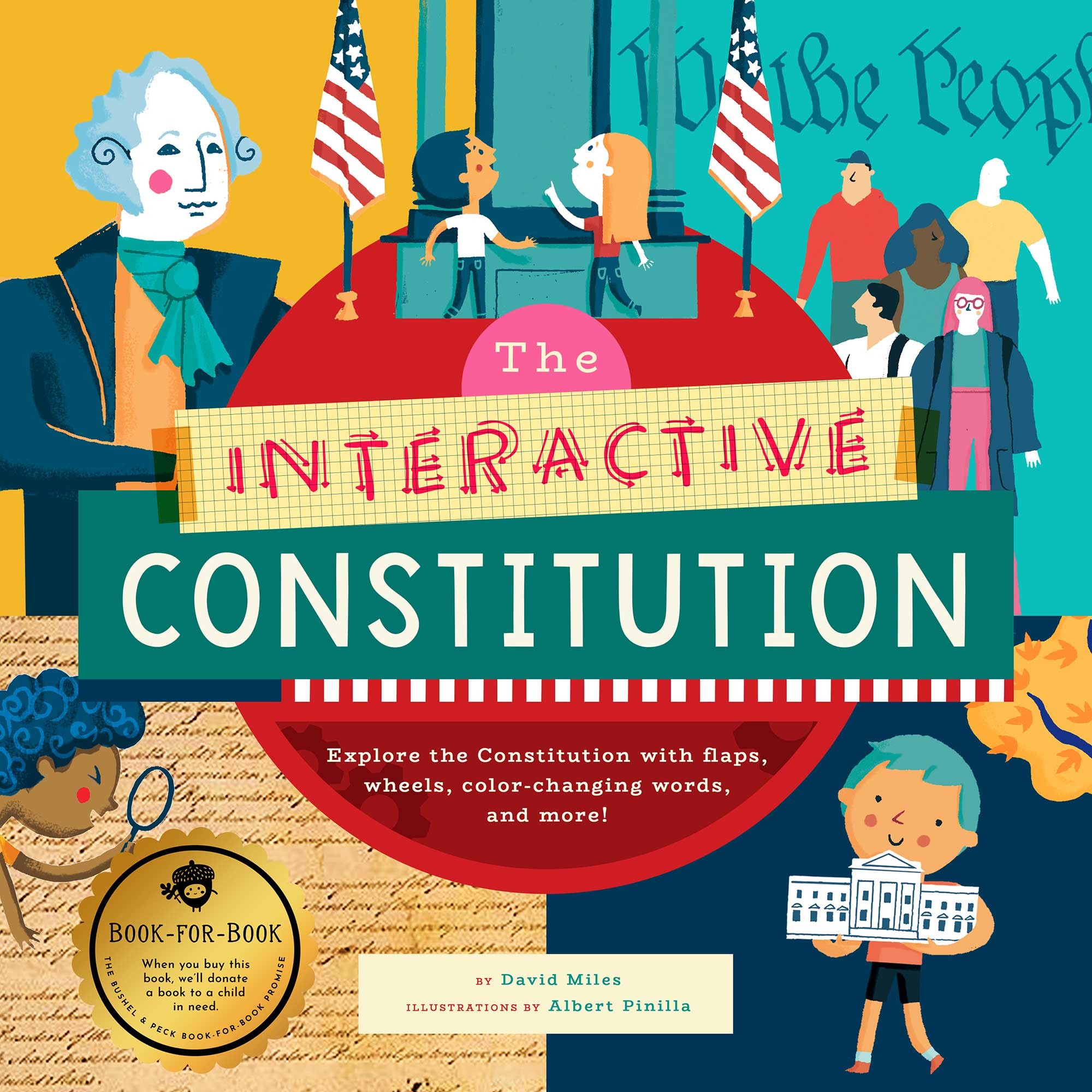
David Miles
Co-Founder, Bushel & Peck Books
Tell us a bit about your professional background including how your career in publishing began.
I actually started in publishing in high school. Back then, there was a press called Landmark Editions that used to run a contest for kids. To enter, you wrote and illustrated your own book, and if you won in your age group, you got a publishing contract. I don't think there were very many entries the year I entered, but I was thrilled all the same when I got the chance to publish my book. I fell in love with every part of the process—flying to their offices, drawing sketch after sketch, studying great picture books, tapping out meter and rhyme over the phone with my editor (those calls could get tense! but she was the matriarch of Landmark and I adored her). Most nights I stayed up into the early morning working on that book, just for the love of it. (Interesting side note: Landmark was the same company that gave Dav Piley his start with World War Won). I studied business in college, but when an internship opened up at a local publishing startup, I applied immediately. I started as a graphic designer and creative director there, then became the publishing director. We grew the company into one of the fastest-growing publishers in the US, and then I finally left to start Bushel & Peck with my wife, Stephanie.

What led you to set up your own publishing house, Bushel & Peck Books, and how would you describe the company's core ethos?
I've never not loved working in book publishing, but it's a different level of passion when you run your own press. While you always have to keep your eyes on the numbers, your press eventually becomes an extension of you—what you're excited about, what you're curious about, what you want to share with the world. I remember staring at the ceiling once shortly after leaving my previous job, just thinking for a bit. We were in the middle of starting Bushel & Peck, and it occurred to me that I didn't have to start a publishing company. I could have started a new career, gone back to school, anything! But what pulled me to publishing like nothing else was knowing that making books gave me a voice. There are plenty of careers that are fun, creative, and everything else I love about publishing, but it's that voice that's so different from anything else.




Could you select 3 of your favourite projects to share with our audience?
There are so many! I love The Interactive Constitution, because it takes something so dry to kids and makes it compelling and engaging with such a novel format, like its color-changing words to help teach vocabulary in the Preamble. (Plus, I'm passionate about American history and civics education, so it's a book we were thrilled to see do well.) But that's a hallmark of many of our books. Any good publisher looks for the perfect marriage of text and art. You might think of those as X and Y axes. But to me, a great publisher will add a third Z axis: format. Can the physical book itself be part of the experience? If it's a book on music, do you add sound? A book on something physical like anatomy, do you add flaps to enhance the physicality of what the kid is learning? If it's historical, do you choose rough woodfree paper to add a tactile sense of time and place? These are the details that make publishing exciting for me.

Which are some of Bushel & Peck Books' bestselling titles & what are some of the reasons behind their success?
Any time we nail the intersection of art, text, and physicality and align the result with the right market, the book tends to do well. Our illustrated poets series is a great example. In that case, we paired beloved poems with vintage collage art that is just so beautiful and really adds to the experience. You can almost feel Poe or Dickinson in the art itself, because so much of it is from the same era. It also created a series of crossover books that sell just as well for adults as they do for children, plus it differentiated our series from those that tend to have more kidlike art, which we felt wasn't the right choice for such celebrated literature.





Do you enjoy nurturing emerging artistic talent, or prefer working with established illustrators?
Both! More than anything, what we look for is an illustrator who can add an extra dimension to a book. Good illustrators draw what they're told and make a beautiful book. Great illustrators enhance the story and add an extra layer of richness, detail, and emotion beyond what the text can convey. Whether young or established, these are the types of artists we like to work with.
For Childrensillustrators.com members looking to appeal to Bushel & Peck Books, what should they look to a) include and b) avoid showing in their portfolio?
I don't know about other publishers, but one of the biggest hesitations we have when hiring an artist is wondering what their work for us will actually end up looking like. Portfolios or past publications help greatly with this, but there's always a bit of a risk in hiring an illustrator you haven't worked with before. For this reason, a couple of pieces of advice come to mind. First, always put your best foot forward. Portfolios tend to be judged on the best and worst pieces, and sometimes the worst pieces tend to get the heavier weight because publishers are afraid that's what they'll get if they hire you. Trim them down to your best, most sensational pieces, and that will get publishers excited. Second, try to be clear about your style. You don't have to limit yourself to one illustration style, but be clear about the different ways you like to create and what a publisher might expect if they hire you. When portfolios are a bit all over the map with medium and style, it brings back that uncertainty for the publisher: what am I really going to get if I hire this person?
What are some of the rewards & challenges associated with running your own business?
Having the freedom to create what you're passionate about is always one of the top perks of running your own press. That brings a slew of its own headaches and challenges, but if you love what you do, all the stress takes a distant second place. That's not to say there aren't lows and sleepless nights, but they're nothing compared with the thrill of seeing a book succeed or holding something in your hands you carefully crafted from its inception.
Which books from your own childhood did you enjoy reading?
All the greats: Harry Potter, The Hobbit and The Lord of the Rings, The Chronicles of Narnia, Little Britches, Winnie the Pooh, Henry Reed, and on and on.
Who have been some of your most influential career mentors?
I learned so, so much from Christopher Robbins, the current CEO of Familius. And along the way, there have been countless people who have shaped my publishing worldview. Every interaction is an opportunity to learn!
What would your dream project look like?
Anything that lived years at the top of the New York Times, of course! But really, if a book somehow touches a life, then that's pay dirt for us.
